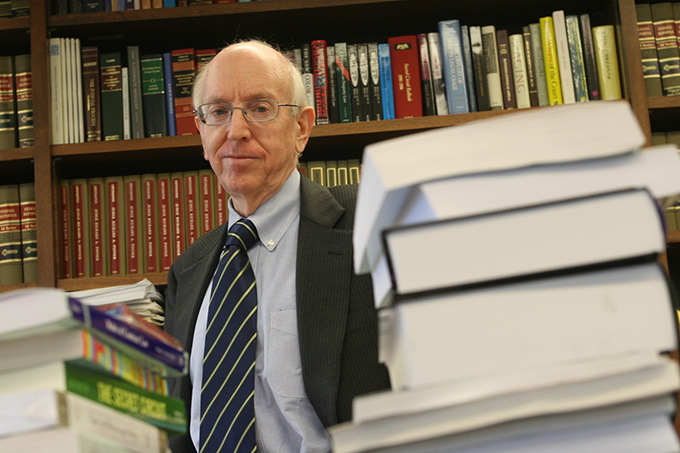Richard Posner

I was saddened to learn today about what has happened to Richard Posner, who in my view became the greatest judge of his generation, until his sudden and unexpected retirement six years ago.
The short version of the story is that, first, Posner resigned from the 7th Circuit because he was coming into increasingly sharp conflict with his colleagues over their treatment of pro se litigants, that is, people who are enmeshed in lawsuits without the benefit of lawyers, and/or criminal defendants who are appealing their convictions (the right to a criminal defense lawyer only extends through an initial conviction, and even then only if you’re indigent, which in many states is a narrowly defined category).
Second, Posner attempted to set up a center to help pro se litigants. I was surprised to learn that he was remarkably unsuccessful in his attempt to raise the one million dollars he estimated the center needed to get off the ground. Posner is probably the most famous and widely respected lawyer of his generation — he had, conservatively, hundreds if not thousands of rich and powerful friends and acquaintances, and one wouldn’t think that raising a million dollars for such a worthy cause would be that difficult for someone like him. Indeed, I would have guessed that a few prominent law firms by themselves would be willing to finance such an effort collectively.
Third, just a few months after Posner started pursuing these attempts in 2018, he was diagnosed with Alzheimer’s disease. This makes me wonder the extent to which the early symptoms of the disease played a role both in his retirement, and in the failure to start the center. It’s well known that especially gifted people, intellectually speaking, often manage to hide the symptoms of cognitive decline for much longer than average, for obvious reasons, and Posner was a formidable intellect. In any event, he has been confined to a nursing home for some time now.
In a melancholy twist, I learned of all this because I stumbled upon a lawsuit filed against him, by a man who Posner had befriended after the man successfully sued his former employer as a pro se litigant. According to him, Posner had agreed to make him co-director of the abortive pro se center, and still owes him $170,000 in salary for the time he worked there, during the center’s 18 months of operation. (I suspect that whatever happened was heavily influenced by the rapid progression of the nightmarish disease that soon robbed Posner of his lucidity).
Posner is a particularly admirable figure, in that he began his career as a doctrinaire libertarian, but over time migrated to a far more nuanced politics, so that by the last decade of his productive life he had become in some respects a genuine man of the left. He was, unlike so many other academic savants, willing to actually learn things that fundamentally altered his view of the world, even many decades into a fabulously successful career. That is an extraordinarily rare thing.
On a personal note, more than a quarter century ago I sent Posner the draft manuscript of my first book. A couple of weeks later I received a several-page single-spaced typewritten critique. At that time, Posner was the chief judge of the 7th circuit, a professor at the University of Chicago Law School, and the author of on average one book and several scholarly articles per year (He is the most cited legal scholar of all time). I was, relatively speaking, nobody. But the most famous legal scholar in America, who was doing about two and a half full-time jobs, took the time to actually read my draft book manuscript and comment on it in detail, because that’s the kind of person he was, and how seriously he took his job(s).
I stumbled upon the conclusion of Posner’s life story this morning, when I was preparing to teach an extraordinary dissent he wrote more than 30 years ago, at the height of the war on drugs. I recommend it to anyone interested in either that topic or the possibilities of judging in the increasingly dysfunctional American legal system. (Posner’s dissent begins on page 1331 of the text).


